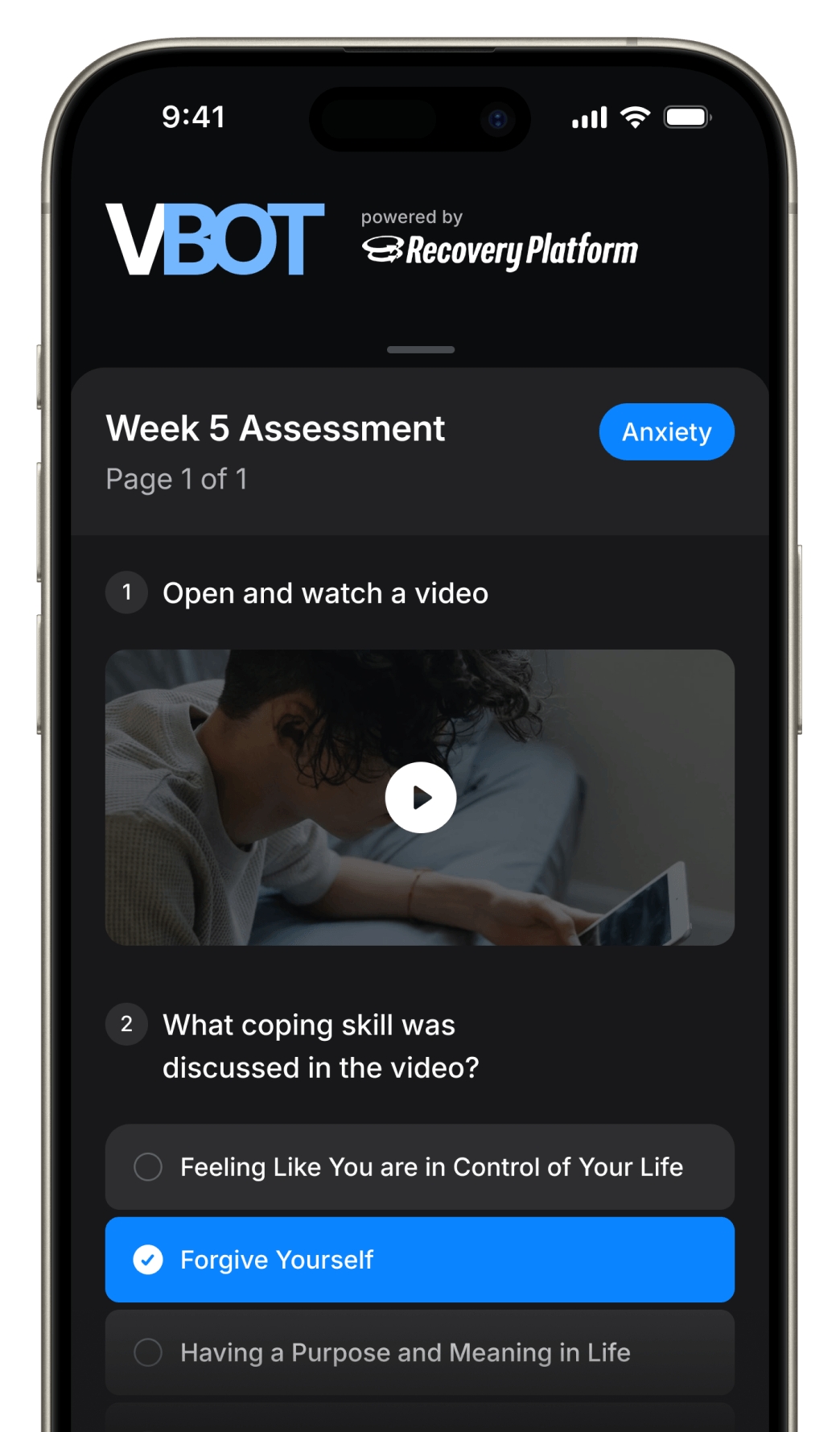Comprehensive Virtual Based Opioid Treatment
Providing advanced technology and treatment modalities to individuals suffering from Opioid Use Disorder (OUD)

Our mission
Breaking barriers to OUD treatment with a collaborative care team model. We offer a private, personalized, and high-quality treatment accessible to everyone, anywhere.
The VBOT approach

Telemedicine
Technology that facilitates access to treatment where none exists
Medication Assisted Treatment
Considered the Gold Standard for treatment of Opioid Use Disorder
Multidisciplinary teams
Collaboration between Prescribers, Counselors, Psychiatrists, Peer Support Specialists, Recovery Coaches, and Case Managers
Our numbers do the talking
At Project VBOT, our approach to treatment revolves around a core set of metrics. We believe in focusing on key indicators that provide a comprehensive understanding of each individual's progress and needs.
- Counseling Engagement95%
Attendance for scheduled counseling appointments
- Lab attendance90%
Rate of attendance for randomized at home urine drug screen
- Retention80%
Patients that remain in VBOT for at least 6 months
- Risk Indicators23%
Anomalies with Drug Screens, Attendance, or PDMP results
Integrated Solutions
The VBOT delivery model integrates typically siloed solutions into a single offering, consolidating critical data from the best-of-breed technologies into the patient registry.
Data Ecosystem
Project VBOT was an answer to our difficulty with bringing all the components for treatment of Opioid Use Disorder
Karen Smith MD
FAAFP 2017 AAFP National Family Physician of the Year
I'm living an entirely different life than I used to...feel like the old me.
VBOT patient
One of thousands of happy patients